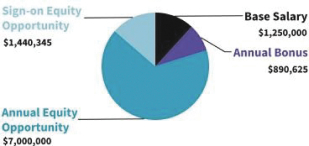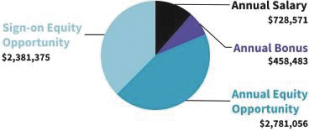We rely upon supplies of certain raw materials, including helium, iodine, and rare earth minerals. Worldwide demand, availability, and pricing of these raw materials have been volatile, and we expect that to continue in the future. If supply of these materials is restricted or if prices increase, this could constrain our manufacturing of affected products, reduce our profit margins, or otherwise adversely affect our business results, cash flows, and financial condition.
The risks of disruption described above, including war, natural disasters, climate change-related physical and transitional risks, actual or threatened public health emergencies, or other business continuity events, could adversely affect our operations and limit our ability to meet our commitments to customers or significantly impact our financial results and condition.
We have replaced certain internal capabilities with outsourced products, services, or solutions. These processes may result in increased dependency on external suppliers. Failure of third-party suppliers to establish and comply with required quality management systems may also lead to withdrawals of our certifications or authorizations required for market access in certain jurisdictions. Such supplier failures may prevent us from meeting customer requirements in a timely manner, which could result in damages or other claims, order cancellations, loss of market share, and damage to our reputation. Shortages or delays could adversely affect our business. A general shortage of materials or components also poses the risk of unforeseeable fluctuations in prices and demand. Any of the above factors could have a material adverse effect on our business results, cash flows, financial condition, or prospects.
Any interruption in the operations of our manufacturing facilities may impair our ability to deliver products or provide services.
We are dependent on our global production and operating network to develop, manufacture, assemble, supply, and service our offerings. A work stoppage, labor shortage, or other production limitation, including import or export restrictions and transportation issues, among others, could occur at our manufacturing facilities and negatively impact our reputation and market position for several reasons, including as a result of regulatory enforcement actions, tight credit markets, or other financial distress, production constraints or difficulties, unscheduled downtimes, war, severe weather and natural disasters, fires and explosions, accidents, mechanical failures, unscheduled downtimes, pandemics, civil unrest, strikes, unpermitted releases of toxic or hazardous substances, other EH&S risks, sabotage, cybersecurity attacks, riots, or terrorist attacks.
Any significant event affecting one of our production or operating facilities may result in a disruption to our ability to supply customers, and standby capacity necessary for the reliable operation of the facility may not be sufficiently available. The impact of these risks is heightened if our production capacity is at or near full utilization (or if we lack alternative manufacturing sites) and could result in our inability to accept orders or deliver products in a timely manner. Additionally, significant capital investment to increase manufacturing capacity may be required to expand our business or meet increased demand for our products in the future. Any of these risks could have a material adverse effect on our business results, cash flows, financial condition, or prospects.
We rely on third parties to perform logistics, transportation, and warehousing functions on our behalf, and disruptions at these logistics providers could adversely affect our business.
Third-party providers perform our warehousing, logistics, shipping, and transportation functions. If any of these logistics providers fails to honor a contractual relationship with us, suffers a business interruption, or experiences delays, disruptions, or quality control problems in its operations, including due to pandemics, regional conflicts, sanctions, geopolitical events, natural disasters, or extreme weather events, or if we have to change and qualify alternative providers for these services, shipments to our customers may be delayed. Increased costs and delays, including as a result of labor shortages, disruptions in transportation lines, international air freight capacity limitations, driver and truck capacity limitations in certain markets, airport and
17















